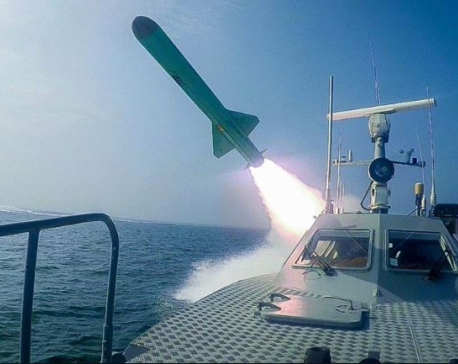
OR
Faulty LPG cylinders
There are around 650,000 cylinders of Liquefied Petroleum Gas circulating in the Nepali market. No one quite knows how many of them are safe to be used in our kitchens. Last month three people were killed when an LPG cylinder belonging to HP Gas exploded in Haugal of Lalitpur. Not long after, another person died in Kathmandu from another such explosion; the cylinder this time belonged to another company, Sugam Gas. Many of the cylinders in the market, it is suspected, are too thin. The cylinder that exploded in Haugal, for instance, was found to be 1.83 mm thick, whereas the prescribed thickness of a cooking gas cylinder is between 2.4 mm and 2.9 mm. This was the reason the government decided to revoke the license of HP Gas to sell LPG cylinders in Nepali markets. But instead of trying to single out bad eggs like HP Gas in its midst, the Nepal LP Gas Industry Association, the umbrella body of 55 gas bottlers in Nepal, committed to protecting them. It thus declared that all bottlers would stop taking their delivery orders from Nepal Oil Corporation from Tuesday until the action against HP Gas was revoked. Since they will have no gas to bottle, these bottlers will in turn deprive people access to cooking gas.
This is illegal. The Essential Goods Control Act (1960) provides for a cash penalty of Rs 15,000 and/or a jail term of up to five years for anyone who obstructs the delivery of essential services like healthcare and cooking gas. But the association has been openly operating like a cartel for a number of years, always resorting to the illegal act of cutting gas supply in the market whenever the government thinks of regulating LPG trade; or when the association feels that bottlers are being compelled to invest more to make their cylinders safe for use in our homes. The government also seems to be in a mood to continue to allow these bottlers to pretty much do as they please. The Ministry of Supplies has thus come up with an ambiguous report on the Haugal explosion, which in a roundabout way absolves HP Gas of any culpability. Interestingly, the ministry’s preliminary investigation had clearly stated that the cylinder that exploded was too thin.
This is not a matter that can be taken lightly. Potentially hundreds of thousands of cylinders that we are using in our homes could be sub-standard. If the government backs down to the pressure tactics of bottlers and if there is tomorrow an exposition of a substandard cylinder that results in loss of lives, people will rightly blame the government for its failure to ensure their safety. There is no question of compromising on public safety to accommodate the self-serving and, ultimately, dangerous demands of the gas industry association. Not just that. There is also a need to promptly put in place a strong oversight mechanism so that the important details of available cooking gas cylinders in the market can be checked. The license of bottlers selling substandard cylinders should then be swiftly cancelled. There can be no half-measures on such life-and-death issues.
You May Like This

Nagdhunga-Sisnekhola tunnel breakthrough: Beginning of a new era in Nepal’s development endeavors
The breakthrough of the Nagdhunga-Sisnekhola tunnel marks a significant leap forward in Nepal's development. For Nepalis who have only traveled... Read More...

Strengthen oversight to ensure good governance practices in banking sector
The integrity of financial institutions is critically important for the economic stability of any country. In Nepal, where commercial banks... Read More...

Iran’s counterstrike
The Middle East, indeed, the entire international community, was on tenterhooks after Israel struck the consular section of Iran’s embassy... Read More...




Just In
- Govt receives 1,658 proposals for startup loans; Minimum of 50 points required for eligibility
- Unified Socialist leader Sodari appointed Sudurpaschim CM
- One Nepali dies in UAE flood
- Madhesh Province CM Yadav expands cabinet
- 12-hour OPD service at Damauli Hospital from Thursday
- Lawmaker Dr Sharma provides Rs 2 million to children's hospital
- BFIs' lending to private sector increases by only 4.3 percent to Rs 5.087 trillion in first eight months of current FY
- NEPSE nosedives 19.56 points; daily turnover falls to Rs 2.09 billion















Leave A Comment